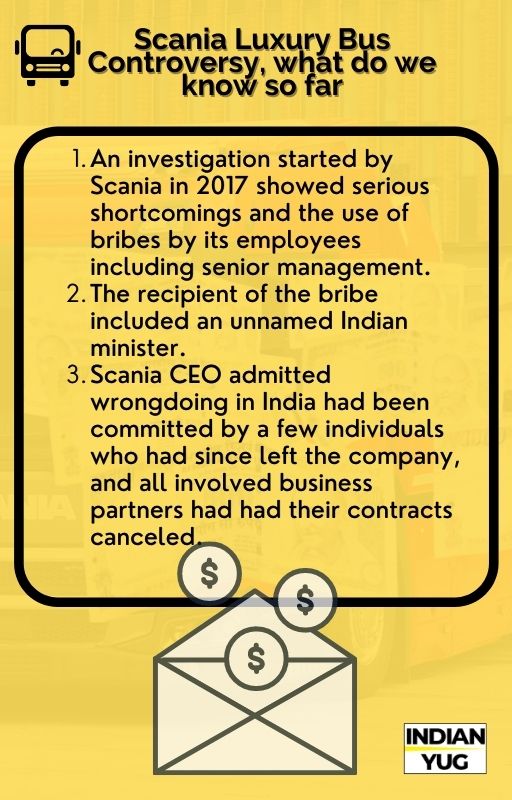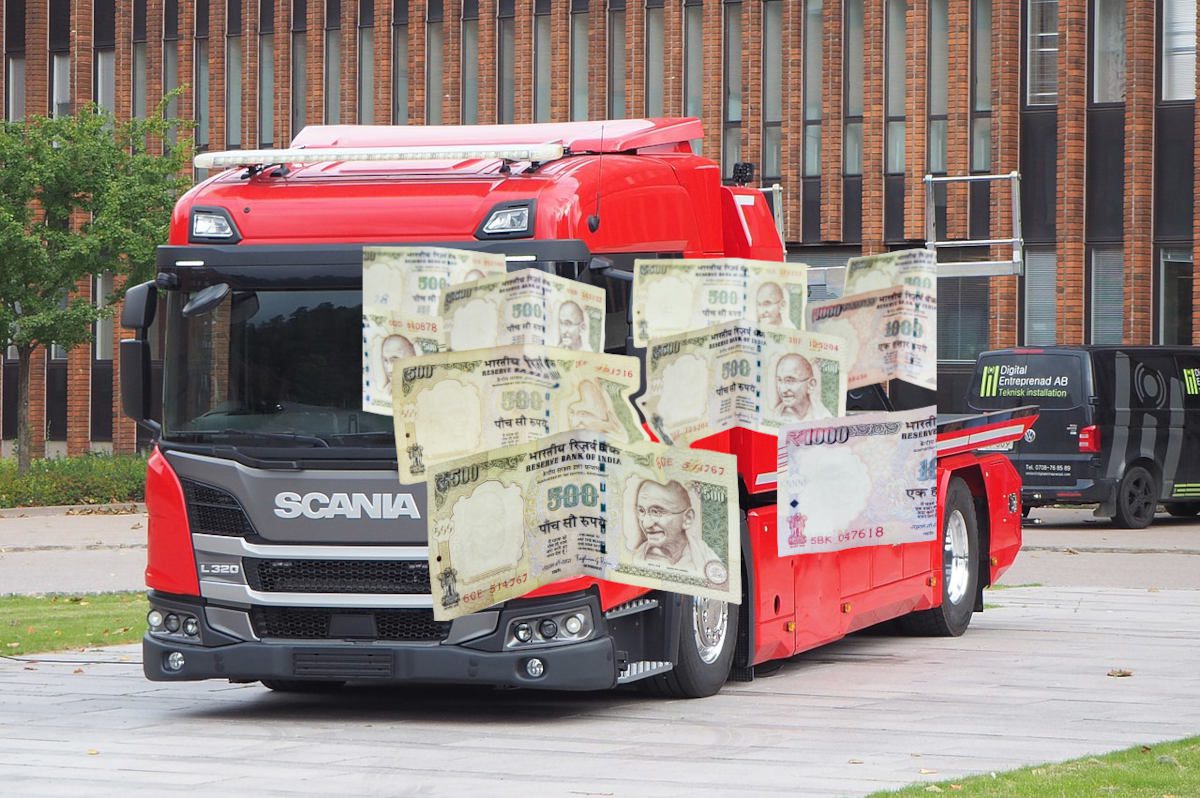- An investigation started by Scania in 2017 showed serious shortcomings and the use of bribes by its employees including senior management.
- The recipient of the bribe included an unnamed Indian minister, according to the multi-agency investigation and report by SVT, German broadcaster ZDF and India’s Confluence Media
- Scania CEO Henrik Henriksson told SVT — any wrongdoing in India had been committed by a few individuals who had since left the company, and all involved business partners had had their contracts canceled.
An investigation by India’s Confluence Media, Sweden’s SVT, and Germany’s ZDF has revealed that the Swedish truck and bus maker Scania paid bribes to win bus contracts in seven Indian states between 2013 and 2016, Reuters reported on Tuesday.
How the investigation started
At the end of 2017, Scania’s auditors received a tip-off that Scania had provided India’s Minister of Transport with a specially designed “luxury bus” as a gift.
According to the report, sources also provided information to the German vehicle manufacturer Volkswagen, which owns Scania, that the bus was a gift to an Indian minister to get an assignment in India.
The internal investigation showed that there was evidence for the accusations that Scania India provided the Minister of Transport’s family with a bus that at that time had not been fully paid for. And that the deal brought a financial benefit for a “senior public official”.
The affair around the bus, which in mail exchange with Scania is called “The Minister Bus” and “Bus given to a very big man”, was sensitive.
Several of Scania’s top executives were involved in the bus deal including Scania’s then CEO of India and his successor. Several of the managers involved were Swedes.

When contacted about the Swedish media investigation, a company spokesperson told Reuters that the “misconduct included alleged bribery, bribery through business partners and misrepresentation.”
The Scania spokesman said its investigation of wrongdoing had not involved the police.
“While the evidence is sufficient to prove breaches in compliance with Scania’s own business codes so that the company can take severe action accordingly, the evidence is not strong enough to lead to prosecution,” the spokesman said.
“Since the entire episode of the Scania bus is an internal affair of the Swedish company, it will prudent for the media to wait for an official statement by Scania India which handled the matter,” it added.
“Gadkari and his family members have absolutely nothing to do with the purchase or sale of the bus,” Gadkari’s office said in a statement.
Henrik Henriksson, CEO of Scania, said the company may have been a “bit naive” in its dealings in India. “We really wanted to make it in India but underestimated the risks,” he was quoted by Reuters as telling SVT.
According to the investigation, Scania also forfeited truck models by replacing chassis numbers and license plates to sell them to an Indian mining company as part of a $11.8 million deal.
[rb_related title=”You May Also Like” total=”2″]
One million Indian rupees in a plastic bag
Assignment review has also taken note of how suspected bribes were paid. According to a chat conversation between an agent and a Scania manager, the agent gave money to a minister in exchange for a bus contract.
The agent photographed the handover for his own safety. Pictures show a woman with a black plastic bag, which according to the Assignment review source contains one million Indian rupees, then the equivalent of 130,000 kronor.
When the banknotes are counted, the Scania manager sends a message to the minister – the money has been delivered. But the boss is worried that the agent photographed the woman and writes:“Thanks for the help yesterday, but very important that it is confidential.”
India’s Big Media draws flak for ignoring Scania bribery scandal
As news of the bribery scandal appeared, Indian Twitter erupted with the hashtag ‘Scania Scam’. Activists, journalists, and other users slammed the mainstream media for completely ignoring the story.
Dilip Mandal, a former India Today editor, called out mainstream media houses, including his former employer, for keeping mum about the scam.
Sanjukta Basu, editorial consultant for Congress mouthpiece National Herald, and Ashok Swain, a researcher based in Sweden, also tweeted about the investigation. As did the Adivasi rights group Tribal Army.
This is what a journalist in India should have done!



